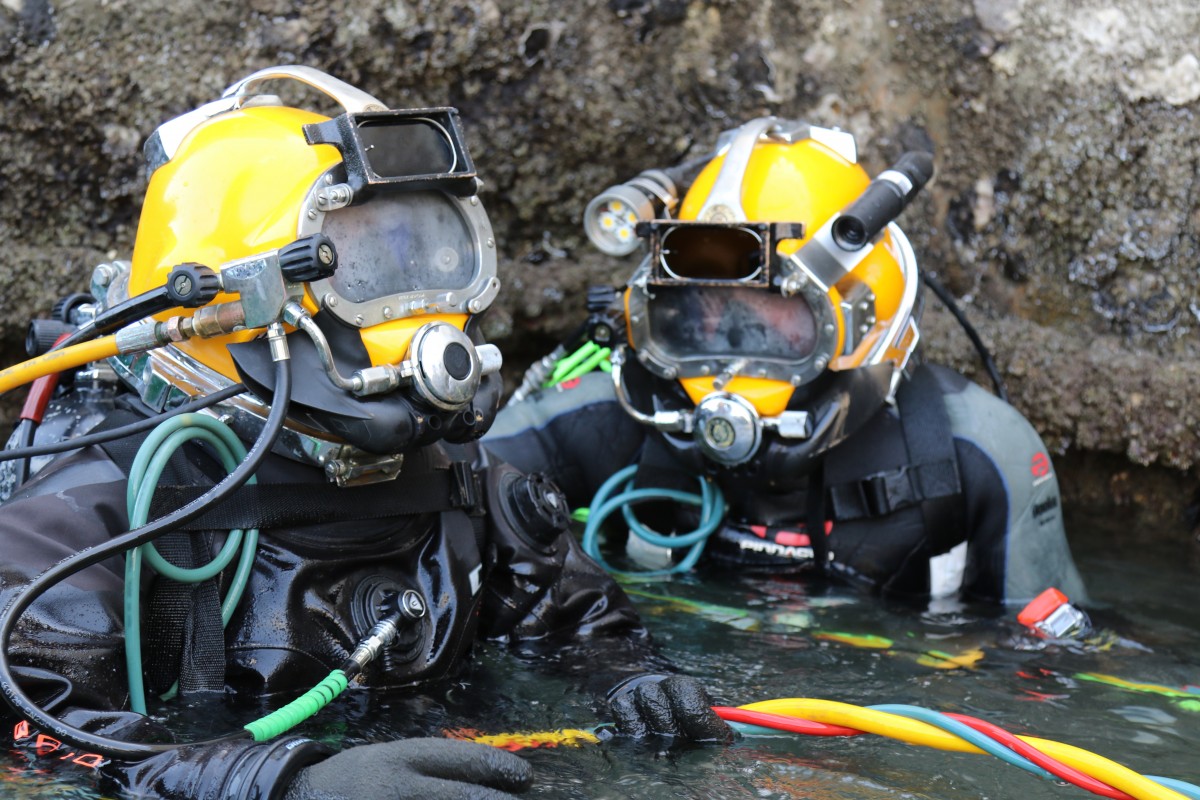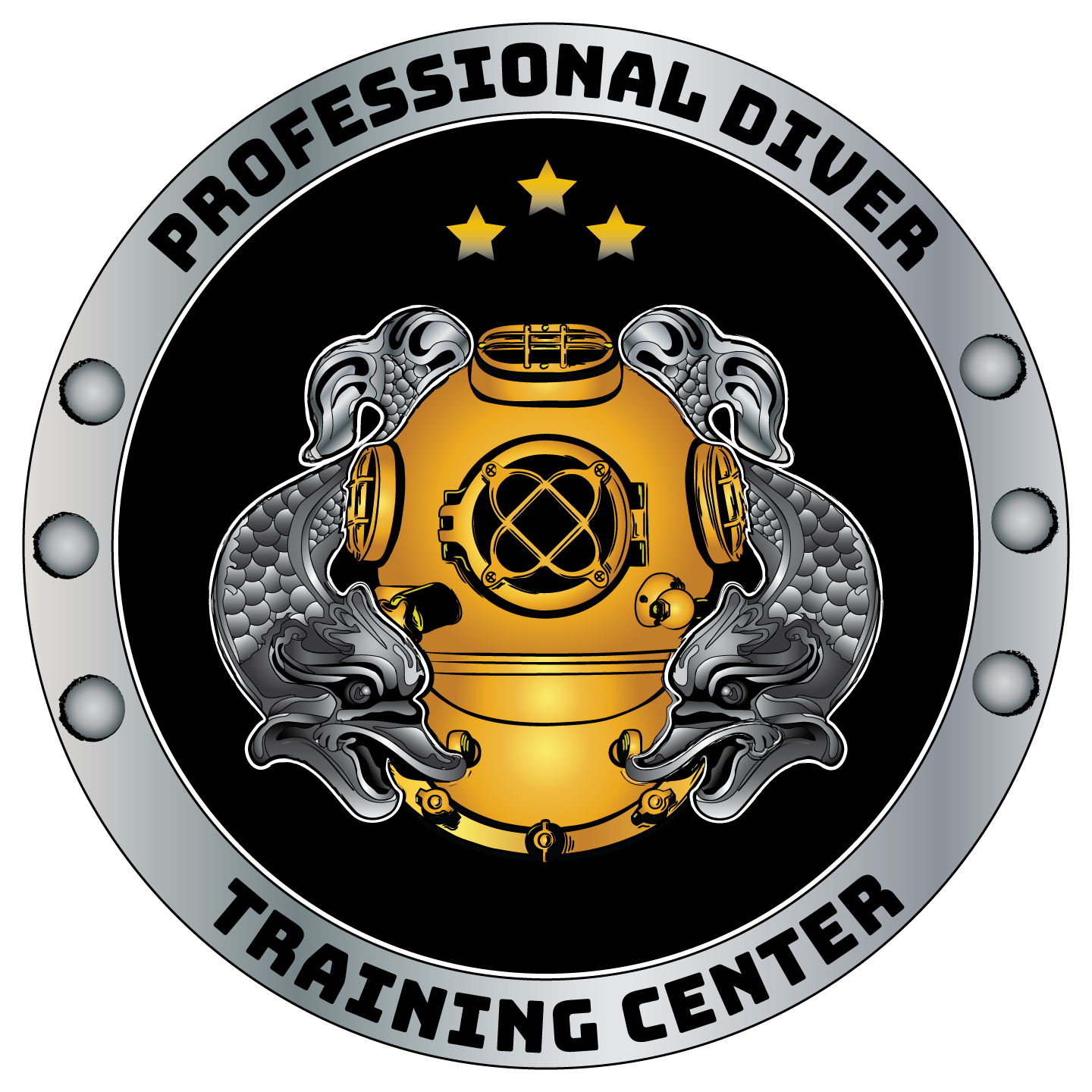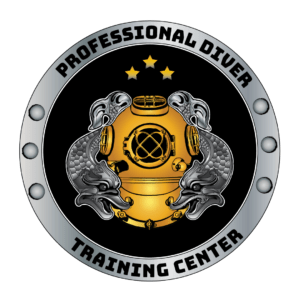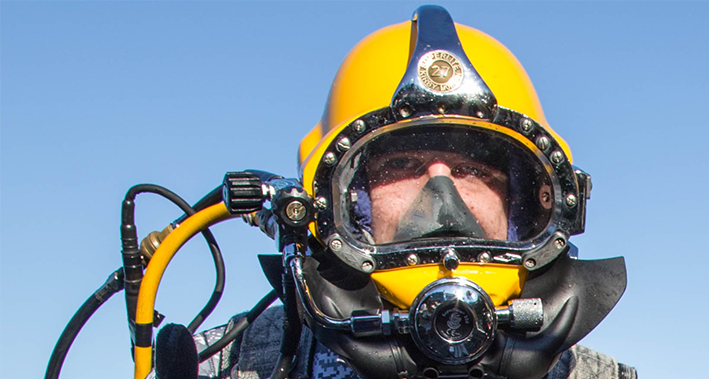Commercial Diving Careers


Written by PDTC
There are a lot of misconceptions about what commercial divers do. Many people are under the false impression that most commercial divers are simply underwater welders. The truth is, the range of jobs a commercial diver can perform is quite far-reaching. In this article, we’re going to take a look at, and break down a handful of jobs that anyone who graduates from a commercial diving school can perform.
Offshore diver:
Offshore diving jobs focus on diving to install or repair underwater structures. Your duties in this career include working to inspect, maintain, or fix the sub-surface parts of oil rigs. Though an offshore diver typically works in the oil and gas industry, you can also perform diving responsibilities in other sectors, such as shipping. You can also repair offshore structures, such as bridges, cables, and pipelines, working with equipment like welding tools, saws, etc.
Inland diver:
Inland divers work in rivers, lakes, Intracoastal waterways, and above-ground water tanks. They perform a variety of work including construction, inspection, and repair of underwater bridge components, piers, water treatment facilities, and hydroelectric dams. They may act as hazmat divers, underwater welders, and salvage divers.
Hazmat diver:
These divers work in known hazardous environments. These environments may be contaminated by hazardous materials, the diving medium may be inherently a hazardous material, or the environments in which the diving medium is situated may include hazardous materials with a significant risk of exposure to the diver. Special precautions, equipment, and procedures are associated with hazmat diving.
Underwater welder:
Underwater or offshore welders combine commercial diving qualifications with welding skills normally performed on dry land. Underwater welders must be able to handle bulky equipment specially designed for this job while working in a hazardous environment.
Salvage diver:
Diving work is associated with the recovery of all or part of ships, their cargoes, aircraft, and other vehicles and structures which have sunk or fallen into the water. In the case of ships, it may also refer to repair work done to make an abandoned or distressed but still floating vessel more suitable for towing or propulsion under its own power.
Inspection diver:
When ships, oil rigs, bridges, and other structures are underwater for long periods, rust and numerous other deteriorators can make them hazardous. Inspection divers are tasked with surveying these structures and relaying their conditions to the topside crew, noting where repairs are required to ensure all relevant codes and safety regulations are met.
Media diver:
Media divers perform underwater filming and photography. They usually work for movie and television companies. They must be trained camera operators and are responsible for planning, researching, preparing equipment, and capturing the shot.
Scientific diver:
Most scientific divers work for larger organizations that engage in underwater research and application. They are trained to use unique instruments for conducting underwater experiments and sample taking. Some scientific diving is carried out by universities in support of undergraduate or postgraduate research programs, and government bodies such as the United States Environmental Protection to recover samples of water, marine organisms, and sea, lake, or riverbed material to examine for signs of pollution.
Public Safety Diver:
Divers who perform underwater rescue, underwater recovery, and underwater investigation conducted by divers working for or under the authority of municipal, state, or federal agencies. These divers are typically members of police departments, sheriff’s offices, fire rescue agencies, search and rescue teams, or providers of emergency medical services. Public Safety Divers (PSDs) can be paid by the previously mentioned agencies or be non-paid volunteers.
Aquarium Divers:
These divers clean tanks, track the health of aquarium plant and animal life, carry out underwater maintenance activities, and sometimes perform in shows to feed sharks, swim with dolphins, etc. Although many of these jobs are in zoos and aquariums, large hotels and casinos that showcase tanks and water features like marine shows, fountains, or dolphin enclosures frequently hire these divers as well.
This list, while comprehensive, is still far from the many ways a commercial diver may apply their skills to different jobs and industries. The need for commercial divers across different sectors is growing and workers with this specialized training are being hired daily. Whether it’s an offshore or onshore job, you can be sure that every day will feel new and exciting. So, what are you waiting for? Commercial Diving is your start to a more exciting future.
Related Articles
Related
Underwater Welding Equipment: Commercial Diving Tools Part Two
If you read part one of our underwater power tools series, you may have noticed one important tool set missing from the list: Underwater Welding Equipment. These are one of the most utilized sets of equipment in commercial diving and deserve an introduction all their...
Commercial Diving Tools: Part One
You’re interested in becoming a commercial diver. You’ve already read up on the basic equipment you’ll be using like helmets, wetsuits, gloves, and boots, but what about the bigger, heavier equipment like power tools? It might surprise you to learn that there are...
Business is Booming: The Growth of the Commercial Diving Industry
If you’ve recently been finding yourself more interested in becoming a commercial diver, you’re not alone. Becoming a commercial diver may only require a comparatively short period of education, but there are a wide variety of occupations this certification opens...
Follow Us
Subscribe For Updates & Offers
GET THE LATEST NEWS AND UPDATES ABOUT PRO DIVER TRAINING CENTER. PLUS WE’LL KEEP YOU INFORMED ON ALL THE LATEST TRENDS, TOOLS, AND TECH HAPPENING IN THE COMMERCIAL DIVING INDUSTRY.


